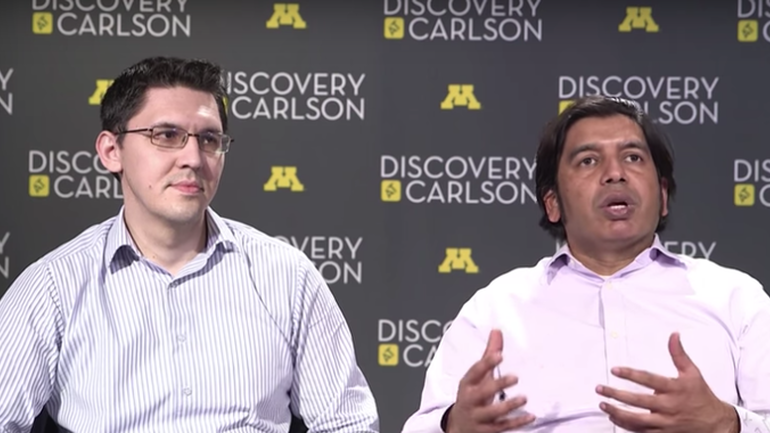
How Online Daters (Unknowingly) Let the One Get Away
Monday, May 2, 2016
“Today, hundreds of millions of people worldwide are looking for dates in a digital environment, and leaving a trail. This allows us as researchers to go into this amazing lab to understand human behavior.”
Nearly half of the single U.S. population uses online dating, convinced that a future spouse could be only a click away. When looking for love in a digital environment, it’s crucial for users to search, evaluate, and engage with potential matches wisely. Perhaps more importantly, online dating platforms must design features to help prospective couples navigate their options and connect with one another.
At the request of a large online dating site, Professor Ravi Bapna, Assistant Professor Akhmed Umyarov, and their colleagues sought to prove whether anonymous browsing—a feature that allows users to view other profiles without leaving a digital trace—helped or hindered successful romantic matches.
The company granted the researchers access to micro-level data on millions of users. For the study, a pool of 50,000 were “gifted” the ability to view profiles anonymously, while a control group of 50,000 continued to leave a trail on the profiles they viewed. As the researchers followed anonymous users along their dating journey, they derived some surprising findings.
“The dominant theory at the company was that anonymity would help the users. But human interaction is so complex that some interventions can have unintended consequences and hurt the very people you’re trying to help,”
The results were contrary to economic theories suggesting reduced search costs benefit individuals: While anonymity drove users to grow their prospects by viewing more profiles, it ultimately resulted in fewer quality matches with prospective partners.
“There was early evidence of disinhibition (people exploring more, and leading to better searching and matching). But increased viewing did not materialize in actual dates,” says Bapna.
The researchers theorize that anonymous users miss the opportunity to signal to a potential match that they’re interested. For example, a user may notice an attractive match visited their profile and reach out with a message. This connection is a forgone opportunity for users who do not leave a trace.
Based on these findings, the online dating platform is rethinking the feature that allows users to browse anonymously. The researchers predict other online communities might also glean lessons from the study.
Watch the researchers further describe their findings:
